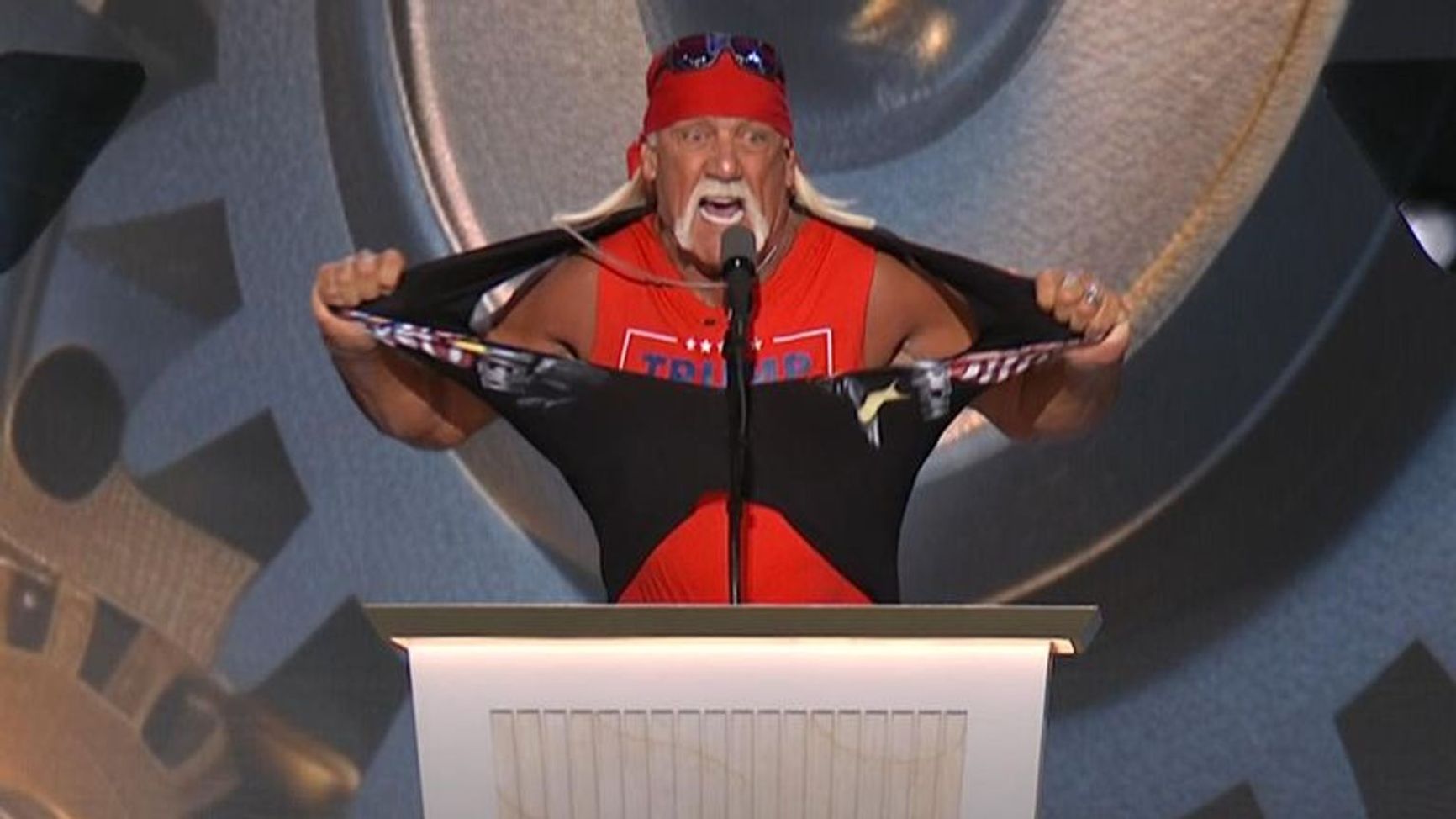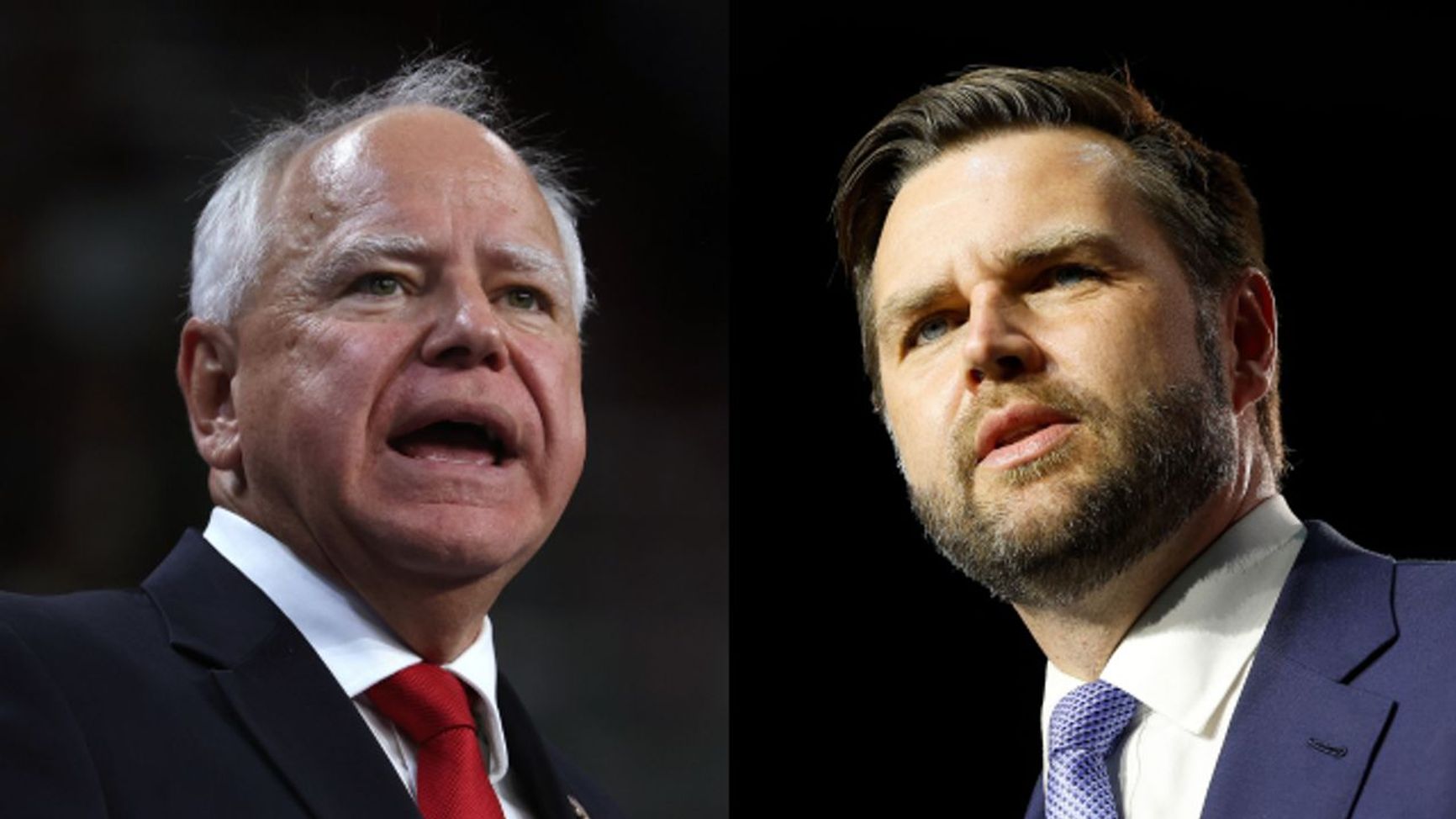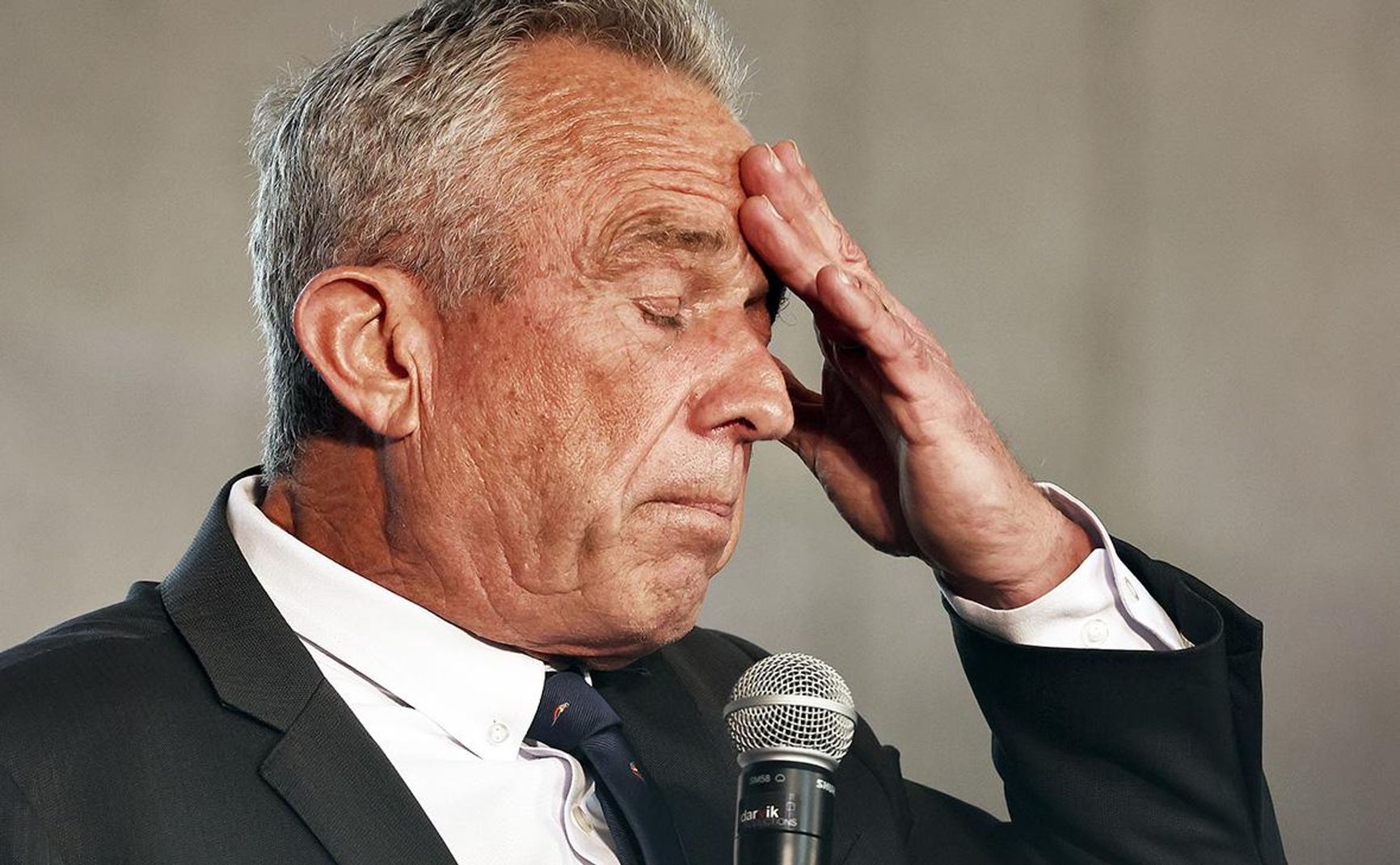

A month and a half ago, many saw Trump's victory in this November’s U.S. presidential election as a sure thing. Now, with the crucial debates just days away, Kamala Harris is pulling ahead in both national and swing state polls. The GOP's VP pick didn't pan out as planned — J.D. Vance was meant to offset concerns about Biden's age, but his far-right stance is now dragging down the Republican ticket. Even Robert F. Kennedy Jr.'s exit from the race, which should have helped Trump, somehow backfired. The party conventions couldn't have been more different. Republicans stuck to their usual playbook of stoking fears, while Democrats went for an upbeat message. And yet, one point of commonality remains: both camps are on edge about the upcoming debates. This is still anyone’s race.
Content
Party conventions: freedom and joy vs. fear and hatred
Vice Presidents: American dad Tim Walz v. Catholic revolutionary J.D. Vance
Trump's choice of Vance: a strategic misstep?
Kennedy’s brain worm
Debates: the moment of truth
Party conventions: freedom and joy vs. fear and hatred
The U.S. presidential campaign typically begins a year before the election, but this time, things have not gone according to plan. The Republicans held their convention in mid-July, but it turned out to be a false start. Wrestler Hulk Hogan, ripped off his shirt during a speech — a symbol meant to represent energy and power in contrast to the old age and frailty of «Sleepy» Joe Biden. However, soon after the convention, the Democrats changed their candidate, and now the argument about age and frailty works against Trump himself, who, if victorious, would be the oldest American ever to take the presidential oath (the current record holder is Joe Biden).
As in the last few elections, the Republicans focused their campaign on negativity, criticizing their opponents. Trump, who calls the U.S. a third-world country, paints an apocalyptic picture of the current situation. In this narrative, immigrants are taking jobs from Americans, people can't walk to the store without risking being killed or robbed, and the world is on the brink of World War III. Here, the Republicans are following the polls: immigration, inflation, and crime are among the top concerns for Americans. But now, all three of these negative indicators are decreasing, returning to pre-COVID levels, and the recent trends have been working in the Democrats' favor.

At their convention in August, the Democrats aimed to shed the label of an unpatriotic party that criticizes the country and its history over issues of inequality, sexism, and racism. They repeatedly declared their love for America, with speeches frequently interrupted by chants of «USA,» turning the hall into a sea of American flags. The main slogans of the convention were «freedom» and «joy» — keywords that were echoed in almost every speech. In contrast to Trump's backward-looking message of making America great again, the Democrats emphasized that they offer a positive vision of the future.
The Democrats at their convention aimed to shed the label of an unpatriotic party and repeatedly chanted «USA»
The Democrats' political platform under Harris is as unifying as possible: it avoids sharp edges (aside from the Republicans' sore spot — abortion rights) and focuses on issues of concern to swing voters, such as fighting rising prices, tightening immigration laws, and cutting taxes for the middle class. In this respect, Harris's speech was a synthesis of the approaches of her Democratic predecessors Barack Obama and Joe Biden: promoting a more moderate image combined with criticism of Trump as a chaotic and destructive politician who prioritizes personal gain over the country's interests.
At the Republican convention, the words «freedom» and «democracy» were rarely mentioned, and the Democrats tried to redefine the concept of freedom, which is usually a rhetorical staple for their opponents. Vice-presidential candidate Tim Walz epitomized this approach best:
«When Republicans use the word freedom, they mean that the government should be free to invade your doctor's office, corporations free to pollute your air and water, and banks free to take advantage of customers. But when we Democrats talk about freedom, we mean the freedom to make a better life for yourself and the people that you love. Freedom to make your own healthcare decisions and yeah, your kid's freedom to go to school without worrying about being shot dead in the hall.»
Both of these images — a positive future and freedom on one side, and fear and longing for a mythical lost past on the other — are quite powerful and motivate voters. The Democratic convention's four nightly broadcasts consistently drew more than 20 million viewers. The Republicans only surpassed this mark on the last day. However, TV ratings are not indicative: somewhat surprisingly, in 2008, Americans were more interested in watching John McCain than Barack Obama, and in 2016, they were more interested in Hillary Clinton than Trump, yet in both cases, the TV favorites lost.
After Biden's exit from the race, the Democrats made every effort to demonstrate internal unity. Biden was mentioned and thanked by almost every speaker at the convention (though it looked more like an honorary political funeral). The speeches of former Presidents Bill Clinton and Barack Obama, as well as of Hillary Clinton, underscored the Democrats' unity. This contrasted sharply with the Republican convention in July, where former President George W. Bush, 2012 Republican presidential candidate Mitt Romney, and even former Vice President Mike Pence were all absent — none of them supported Trump.
The Democrats tried to exploit this division between Trumpists and the old mainstream of the Republican Party. They invited several Republicans to their convention: Georgia's Lieutenant Governor Geoff Duncan; former Congressman Adam Kinzinger; Mesa, Arizona Mayor John Giles; and former Trump White House Press Secretary Stephanie Grisham. All of them criticized the Republican candidate and urged people to vote for Kamala Harris. And yet, according to polls, the main blow to Trump's standing among the electorate came not from these Republicans, but from the person Trump himself chose as his vice-presidential candidate.
Vice Presidents: American dad Tim Walz v. Catholic revolutionary J.D. Vance
Both conventions featured vice-presidential candidates — Tim Walz for the Democrats and J.D. Vance for the Republicans. Both hail from the Midwest: Walz was born in Nebraska and later moved to Minnesota, while Vance, from Ohio, is known for his book «Hillbilly Elegy» about the region's depressed culture. Walz served in the National Guard for 24 years, though he never saw combat, while Vance spent several years in the Marine Corps, including during the U.S. invasion of Iraq. Walz was previously elected to the House of Representatives, while Vance is a sitting Senator.

Walz is known for the flexibility of his political beliefs. In Congress, he was considered a moderate and even enjoyed the support of the gun lobby, which usually favors Republicans. But after becoming governor of Minnesota in 2018, he shifted to the progressive wing of the party — pushing through protections for the right to abortion in his state, for example. Although he is Kamala Harris's contemporary, he complements her well. In contrast to the image of the California prosecutor in a strict business suit, Walz comes across as a good-natured dad, often seen in a camouflage baseball cap, T-shirt, and jeans.
Walz hit a home run with a single interview, giving the Democrats' campaign a much-needed boost. He called the Republicans «weird,» and it stuck like glue. Trump, ever the showman, tried to jazz up the GOP convention (and the whole campaign) with his usual flair for drama. But it backfired — a lot of media outlets wrote off the Republican gathering in Milwaukee as a «freak show,» packed with an eyebrow-raising cast of characters, some with more than a little scandal to their names. Somewhat surprisingly, VP pick J.D. Vance ended up being one of the oddball standouts.

Trump's choice of Vance: a strategic misstep?
Trump chose J.D. Vance as his running mate when Biden was still in the race and the Republicans seemed on the way to victory. However, Harris's entry into the contest has changed the dynamics, leading some Republicans to regret the choice of Vance, considering him one of the worst possible picks under the new circumstances. Vance is one of the most conservative Republican senators and does not balance out Trump’s candidacy. Instead, he represents a new wave of populists who fully embrace Trumpist views — Trump, in fact, openly admitted that he chose Vance primarily for his loyalty — and believe that the U.S. should move towards isolationism. Vance is a prominent critic of U.S. aid to Ukraine, a supporter of radically reducing immigration, and advocates for moving away from the principle of non-interference in the domestic economy. He takes every opportunity to demonstrate his loyalty to Trump, which raises doubts about his principles, given that he once called Trump an idiot and compared him to Hitler.
In his book, Vance criticized his fellow Midwesterners for their habit of blaming their problems on the “liberal elite” and the federal government in Washington, rather than taking responsibility themselves. However, after converting to Catholicism in 2019, Vance gradually became the target of his own criticism, and a staunch supporter of Trump. Now he labels Harris and other Democratic politicians as «childless cat ladies» who have no interest in the future of the country. In one interview, he even suggested waging a final battle against the liberal establishment and purging federal agencies, universities, and the cultural sphere of its influence.
Vance's excessive radicalism, inconsistency in beliefs, and lack of charisma have made him one of the most unpopular Republican vice-presidential candidates in living memory, with unfavorable ratings outpacing support. In a recent poll, 39% of respondents had a negative opinion of J.D. Vance, while 34% viewed him favorably. In the same poll, 39% had a positive view of Tim Walz, with 29% holding a negative view. Nevertheless, Vance has a chance to redeem himself on October 1st, when he will face off against Walz in a debate.
Vance is one of the most unpopular Republican vice-presidential candidates in history
Kennedy’s brain worm
In U.S. presidential elections, a third-party candidate often plays a significant role by drawing votes away from one of the two mainstream candidates. This time, that role was expected to be played by independent candidate Robert F. Kennedy Jr., who ended his presidential campaign on August 23 and endorsed Donald Trump. Kennedy Jr. is the nephew of the assassinated President John F. Kennedy. In his youth, he struggled with a severe heroin addiction but managed to recover and became a well-known environmental activist. However, in recent years, Kennedy Jr. has transformed into a conspiracy theorist and anti-vaxxer. He has been a vocal opponent of U.S. aid to Ukraine and even compared Joe Biden to Putin (in a negative sense for Biden, not in the way Trump has praised Putin as a «great guy»).

After failing to seriously challenge Joe Biden in the Democratic primaries, Kennedy ultimately ran as an independent, which led to his ostracism by most of his former fellow party members. Within a few months, his campaign had spent almost all of its funds, most of which came from V.P. pick, Nicole Shanahan, the ex-wife of Google co-founder Sergey Brin. Kennedy himself became embroiled in a series of scandals that, to put it mildly, did not boost his popularity. It was revealed that he had a parasitic worm living in his brain, that he had picked up a bear cub hit by a car to eat it but then mysteriously left it in Central Park for fun, and that he allegedly once ate a dog. These stories do not align well with his image as an environmental activist, and his ratings dropped from 15-20% in the fall of 2023 to 2-5% by August 2024.
Most of Kennedy’s supporters were disillusioned Republicans and Democrats who had a negative view of both Trump and Biden. But Harris managed to win back some of these voters, and although Trump has offered Kennedy Jr. a position in his future administration, this commitment will likely add no more than 1-2% to the Republican candidate’s vote share — and it could even backfire.
Previously, Kennedy Jr. proposed lending his support to Kamala Harris in exchange for a position in her future administration. However, her campaign decided that associating itself with a relatively unpopular anti-vaccine candidate would negatively impact her campaign — and that if Kennedy Jr. were seen to ally himself with the Republican ticket, he would become an easy target for her to attack alongside Trump and Vance. Moreover, after the Democratic convention, Harris is clearly on the upswing. In just one month, 400,000 volunteers joined her nationwide. She has raised more than half a billion dollars in donations — almost twice as much as Trump. In just 11 days in late July, 1.5 million people donated to her campaign, a figure representing 40% of all donors who have supported the Democrats' campaign financially since April 2023.
Debates: the moment of truth
As of early September, Harris leads Trump by around 2-4% nationwide and is ahead in many swing states (Wisconsin, Michigan, Pennsylvania), while in others (Nevada, Arizona, Georgia, and North Carolina), the race is almost even. Electoral models also favor Harris. According to calculations by The Economist and researchers from Columbia University, Harris is expected to win the majority of votes in the Electoral College. The model used by FiveThirtyEight also predicts her victory: out of one thousand simulated election outcomes, Harris wins in 589, and Trump in 407. Electoral analyst Nate Silver's model gives Harris a 51.5% chance of winning. A different model, used by The Hill, estimated Harris's chances of winning at 56%.
According to the RealClearPolitics polling data aggregator, Harris leads by about 1.8% nationwide
In terms of electoral votes, Harris is ahead by just two votes, and the deciding states are likely to be Pennsylvania and Georgia, where polls currently show a near tie.
However, it is much too early to count Trump out. Polls significantly underestimated the Republican candidate in the 2016 and 2020 elections, especially at the state level. Although pollsters insist they have improved their methods, their measurements should still be viewed with some caution. Harris's lead in the polls may also be due to a positive but temporary convention bump, a good choice of vice-presidential candidate, and a kind of «honeymoon period.» As Americans become more familiar with Harris and her positions on key issues, she may lose some of this support.
The big showdown is set for September 10, when Trump goes toe-to-toe with Harris on the debate stage. Trump had the upper hand against a shaky Biden back in June — which resulted in the sitting president’s decision to drop out of the race altogether. But squaring off with a younger, sharp-as-a-tack female prosecutor is a whole different ball game. At 78, with legal troubles and sex scandals dogging him, Trump has his work cut out for him. Most Americans have already picked sides, so don't expect any earth-shattering pollint shifts after the debate. Still, even a tiny 2-3% swing could decide everything come Election Day.